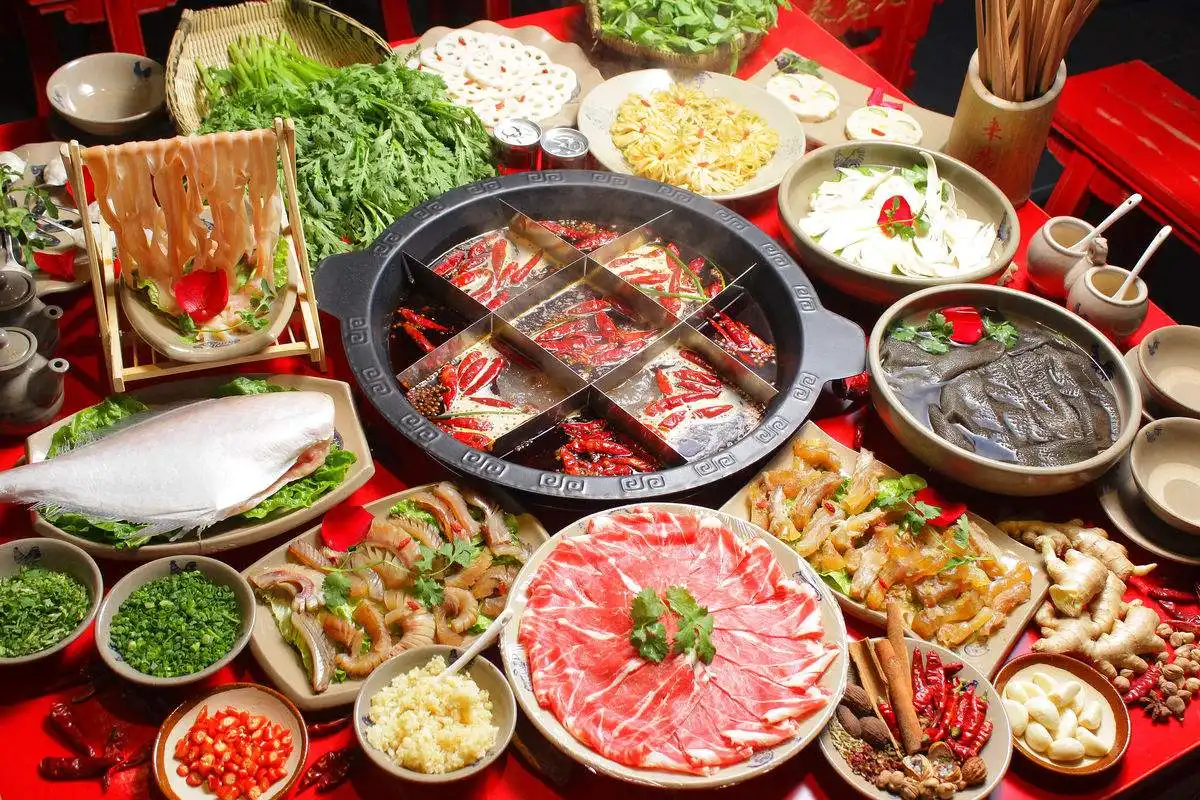Chinese Hot Pot

Hot pot, known as "antique soup" in ancient times, is named after the "drumming" sound when food is put into boiling water. It is one of China's original delicacies and a food suitable for all ages.
Hot pot generally refers to the cooking method of taking the pot as the utensil, burning the pot with heat source, boiling all kinds of food with water or soup, and also refers to the utensils used in this cooking method. It is characterized by eating while cooking, or the pot itself has a heat preservation effect. When eating, the food is still steaming. Similar dishes are available all over the world, but they are especially popular in East Asia. Hot pot is hot, spicy, salty and fresh, oil but not greasy. It can relieve depression and dehumidification. It is suitable for the climate of mountains and rivers. Now it has developed into two-flavor hot pot. It can be added with different soup and food according to personal preference. It is suitable for all ages and is a good meal in winter.
Typical hot pot ingredients include all kinds of meat, seafood, vegetables, bean products, mushrooms, egg products, staple foods, etc. put them into boiled water and scald them before eating. Some eating methods will also be dipped in seasonings.
Hot pot is not only a delicacy, but also contains the connotation of food culture, adding elegance to people's taste. When eating hot pot, men, women, children, relatives and friends gather around the steaming hot pot, talk with each other, hold up the chopsticks and have a big meal. The warmth is rippling and filled with a warm and harmonious atmosphere, which is suitable for the Chinese traditional culture of family reunion.
In the northeast, when people entertain guests, the dishes in the hot pot are placed quite regularly: birds meat is placed in front of the mouth of the hot pot, animal meat is placed behind the hot pot, fish on the left and shrimp on the right. All kinds of shredded vegetables are slightly placed, just like "stars support the moon" to show respect. If you treat uninvited guests, put two extra large meatballs in front of the hot pot, followed by animal meat, to signal you to leave.
In Sichuan, people also pay attention to eating hot pot. The most basic condiments are usually onions, ginger, garlic and sesame oil, so that they can eat the original flavor of hot pot. There are rules for scalding dishes. First eat ingredients such as tripe, duck intestines. The scalding method is: seven up and eight down, so that the dishes scalded are the most tender. Entertaining guests or having dinner with friends, a hot pot with beer and liquor, can best meet the hospitable character of Sichuan people.
Taiwan mostly eats hot pot on the seventh day of the lunar new year. There are seven indispensable ingredients for hot pot, namely celery, garlic, onion, coriander, leek, fish and meat, which respectively mean: "diligence, frugal, intelligence, good popularity, long-term happiness, surplus and abundance"